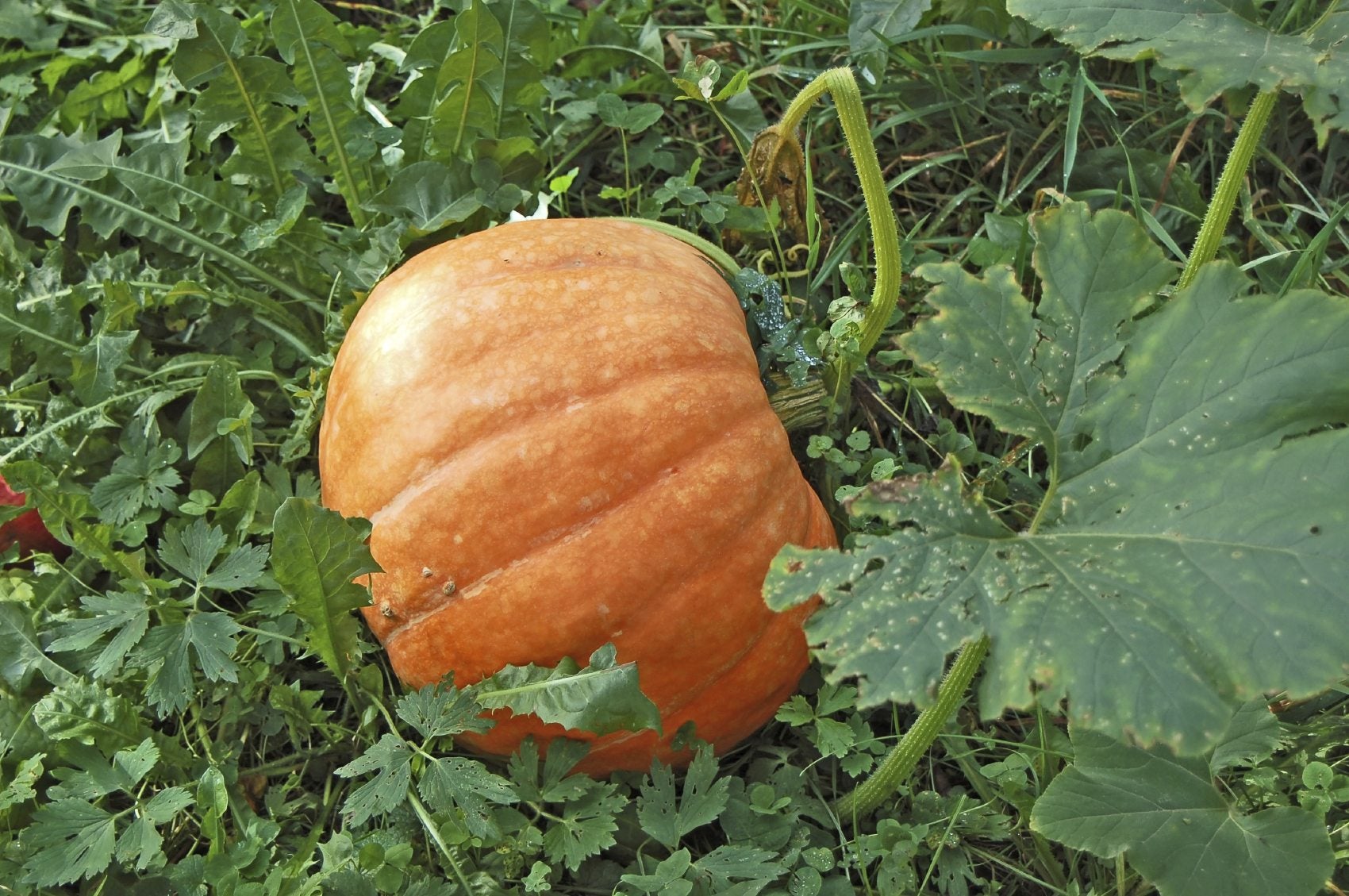Pumpkin Insect Control – Dealing With Pumpkin Insect Pests


Growing pumpkins can be a high-risk operation, especially if you’re after a real giant. Big pumpkins can take all summer to grow, and the last thing you want is for your prize specimen to fall victim to pumpkin insect pests. Keep reading to learn about pumpkin insect problems and pumpkin insect control.
Pumpkin Insect Problems
Pumpkins are a favorite food of quite a few insects, and pests on pumpkins can be a real problem. Most, however, are treatable or at least preventable. Here are the most common bugs on pumpkin plants and how to treat them:
- Beetles – Beetles are the most common but easily treated pests on pumpkins. Spray your vines with a mild pesticide and they should disappear.
- Snails and slugs – Snails and slugs love to eat the tender flesh of very young, giant pumpkins. Put a ring of epsom salt or sand around your pumpkin-- the pumpkin insect pests won't cross it. Once your pumpkin’s skin has hardened, the bugs won’t be able to puncture it and won’t be a problem anymore.
- Squash bugs – Squash bugs can destroy stems and leaves and require pumpkin insect control in the form of Carbaryl, as an effective insecticide.
- Vine borers – Serious pumpkin insect problems can be caused by vine borers. These creatures burrow deep into pumpkin vines and suck away their moisture. If you find one, you may be able to save your vine by digging the bug out and burying the damaged part of the vine in the ground to encourage it to take root. This is dangerous business though, and not always successful. The best thing to do is take preventative measures by spraying the entire vine with a strong pesticide.
- Aphids – Aphids are pests on pumpkins that don’t necessarily do damage except in large numbers when they can yellow leaves and produce a nasty, sticky substance called honeydew. Even in small numbers, however, they can spread diseases among pumpkin plants. Light insecticides should kill off an aphid infestation, but they can also be combatted by a strong spray of water, the introduction of natural predators like ladybugs, and the installation of reflective mulch.
Sign up for the Gardening Know How newsletter today and receive a free copy of our e-book "How to Grow Delicious Tomatoes".

The only child of a horticulturist and an English teacher, Liz Baessler was destined to become a gardening editor. She has been with Gardening Know how since 2015, and a Senior Editor since 2020. She holds a BA in English from Brandeis University and an MA in English from the University of Geneva, Switzerland. After years of gardening in containers and community garden plots, she finally has a backyard of her own, which she is systematically filling with vegetables and flowers.